Sens. Hassan and Young Reintroduce Crucial R&D Legislation
American Innovation and Jobs Act will ensure that the tax code supports the ability of manufacturers to out-compete China and create well-paying jobs
Washington, D.C. – Following the introduction of the American Innovation and Jobs Act by Sens. Maggie Hassan (D-NH) and Todd Young (R-IN), National Association of Manufacturers Managing Vice President of Tax and Domestic Economic Policy Chris Netram released the following statement:
“Manufacturers are hiring workers, investing in communities across the United States and creating the products, materials and processes that drive America forward. Manufacturers applaud the introduction of the bipartisan American Innovation and Jobs Act, which restores full deductions for research, helping the American industry out-compete China, which provides a 200% super deduction for manufacturers’ research—20 times the amount in the U.S. tax code,” said Netram. “Manufacturers, the vast majority of which are quite small, perform 55% of private-sector research and development. These investments in innovation spur economic growth and support the creation of high-paying jobs across the country. Congress should approve the American Innovation and Jobs Act quickly to support critical research that allows manufacturers to improve lives in America and for people around the world.”
Background: As of 2022, manufacturers can no longer immediately deduct their R&D expenses in the year in which they are incurred. Instead, manufacturers must deduct or amortize their expenses over a number of years, which makes R&D much more expensive to undertake. The American Innovation and Jobs Act would restore the immediate deductibility of R&D expenses, a policy that was in place for nearly 70 years. In the 117th Congress, the American Innovation and Jobs Act garnered 35 cosponsors: 17 Democrats and 18 Republicans. A recent analysis released by the NAM finds that the industry would lose 59,392 jobs and face a decline in output of $31.69 billion this year if Congress does not act.
-NAM-
The National Association of Manufacturers is the largest manufacturing association in the United States, representing small and large manufacturers in every industrial sector and in all 50 states. Manufacturing employs nearly 13 million men and women, contributes $2.81 trillion to the U.S. economy annually and accounts for 55% of private-sector research and development. The NAM is the powerful voice of the manufacturing community and the leading advocate for a policy agenda that helps manufacturers compete in the global economy and create jobs across the United States. For more information about the NAM or to follow us on Twitter and Facebook, please visit www.nam.org.
EPA Proposes PFAS Standards
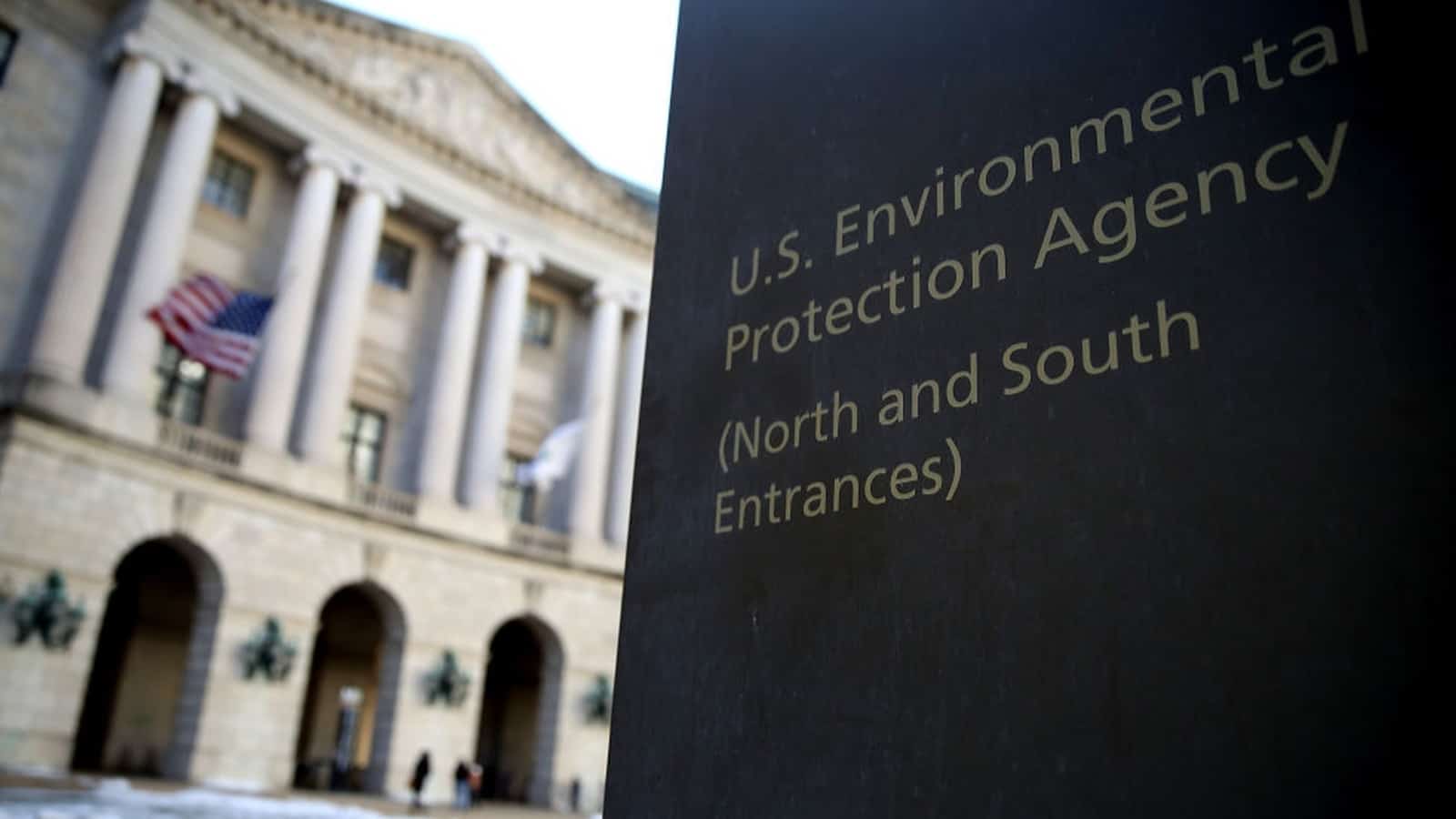
The Environmental Protection Agency has proposed the first federal limits on two chemical compounds that were used widely in everyday products for decades, The Wall Street Journal (subscription) reports.
What’s going on: “The agency is proposing maximum allowable levels in the nation’s public drinking-water systems for two compounds in a class of chemicals known as perfluoroalkyl and polyfluoroalkyl substances, or PFAS, which were used for decades in carpeting, clothing, food packaging, firefighting foam and other consumer and industrial products. The EPA also said it would regulate four other PFAS chemicals by requiring treatment if the combined level reaches a certain concentration.”
- The suggested limits under the Safe Drinking Water Act are part of a larger move by the EPA to tighten rules around “forever chemicals”—so known because they take years to break down—owing to “a growing number of studies [that] have shown links to a variety of cancers, thyroid disease, high cholesterol and other issues.”
- The two individual chemicals under discussion are known as PFOA and PFOS, which various industries began using in the 1940s for their ability to resist grease, corrosion, water and stains, as well as to douse fires.
Why it’s important: While the EPA says the change would prevent numerous deaths and illnesses, not everyone is assured of the soundness of the science behind it—and others say it would cost companies unnecessarily.
- Critics of the new proposed standard say the chemicals are still necessary components of numerous products, from cell phones to medical devices, and there are no viable alternatives. Moreover, when used correctly, PFAS compounds do not pose a significant health risk to humans or the environment, they say.
- One source told the Journal the new limits “would cost water systems $40 billion” in compliance-related spending.
Our take: “Everyone deserves access to clean drinking water, and manufacturers continue to do their part to ensure we achieve the highest levels of environmental stewardship,” said NAM Director of Energy and Resources Policy Chris Morris.
- “Manufacturers in America are committed to the communities in which they live and serve and are dedicated to protecting the health, safety and vibrancy of those communities. The EPA’s proposal leaves many questions unanswered on the feasibility of meeting these new standards and the economic impacts this will have on communities, especially rural communities and consumers. The NAM looks forward to continuing to work with the EPA to ensure everyone has access to clean drinking water.”
Arctic Drilling Gets the Go-Ahead
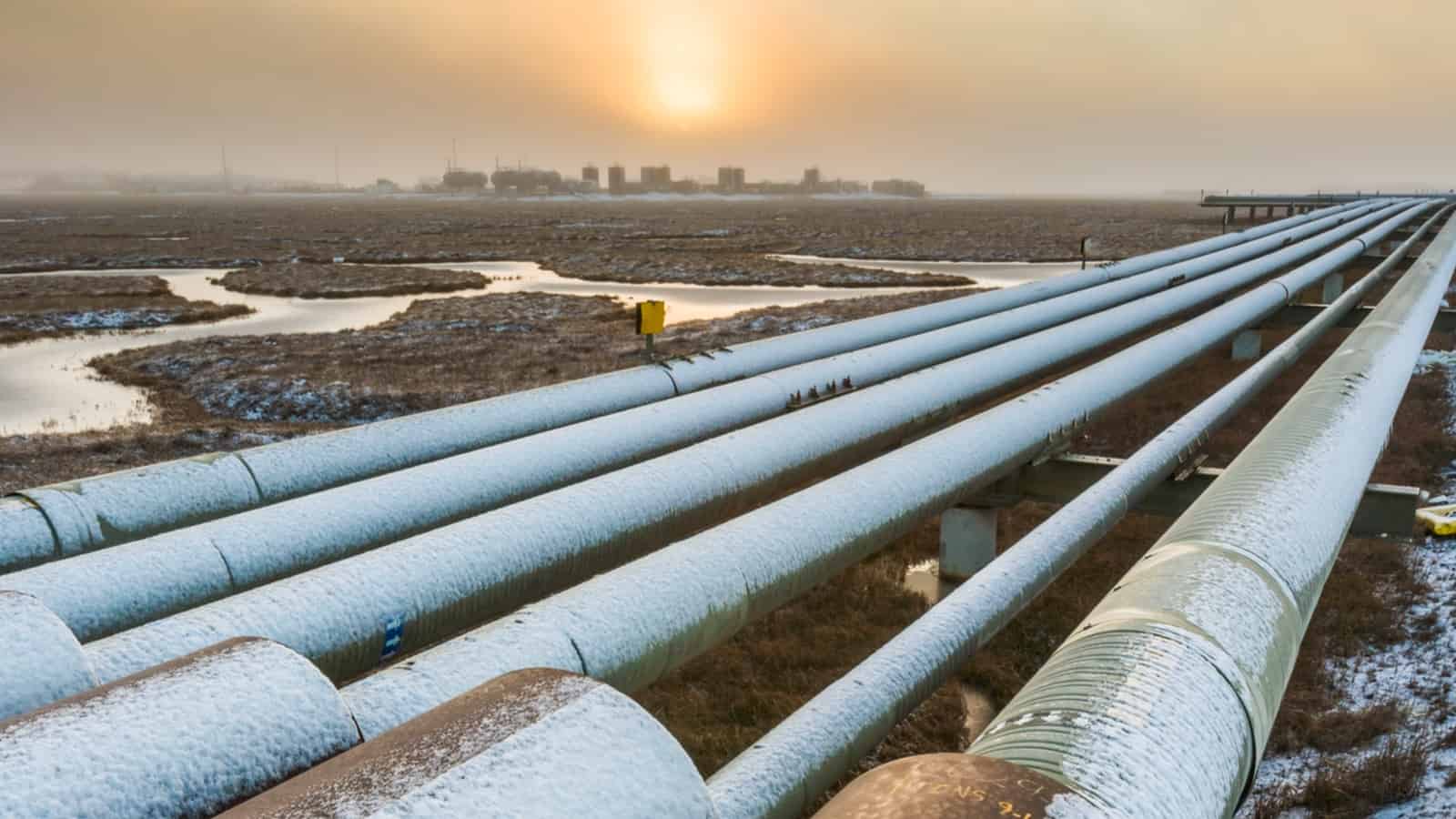
The Biden administration has given its approval of the Willow oil-drilling project in Alaska, reports The Wall Street Journal (subscription).
The gist: “The green light means Houston-based ConocoPhillips can start construction on its roughly $7 billion project in Alaska’s National Petroleum Reserve, which the company expects will produce about 180,000 barrels of oil a day at its peak—equivalent to about 40% of Alaska’s current crude production.”
- “The Interior Department said it would allow drilling on three of the five drill sites proposed by ConocoPhillips, which announced the Willow discovery in 2017.”
The NAM’s take: The NAM expressed its support of the project to the administration last summer, pointing out that while manufacturers make full use of renewable energy sources, they also need oil and gas.
- “Manufacturers know that we must continue developing reliable sources of American energy and can do that in a way that still allows us to achieve critical environmental goals,” said NAM President and CEO Jay Timmons today.
- “The Willow project is one such opportunity, which is why we advocated for its approval. Projects like this strengthen manufacturing’s competitiveness and are essential to bolstering domestic supply chains and job creation.”
NAM in action: The NAM has long been a vocal supporter of enacting permitting reform and making way for large-scale energy and infrastructure projects. Below, you can watch Timmons discuss the importance of overhauling the system during his 2023 State of Manufacturing Address:
The last word: Timmons recently hammered home the need for reform in a message to several U.S. House committees, saying, “Some of the biggest obstacles preventing manufacturers—and therefore the entire American economy—from reaching our full potential are the permitting delays, red tape and complicated bureaucracy that have plagued us for decades.”
Timmons: We Have to Get Serious About Competing with China; The President’s Budget Does the Opposite
Washington, D.C. – National Association of Manufacturers President and CEO Jay Timmons released the following statement on President Biden’s fiscal 2024 budget plan:
“There is no escaping the fact that the tax increases in President Biden’s new budget proposal would reverse the recent significant growth we’ve achieved in American manufacturing jobs and investment.
“After the 2017 tax reform made rates more competitive, manufacturers kept their promises to raise wages and invest in their communities. In fact, 2018 was the best year for manufacturing job creation in the previous 21 years. And in the past two years, as we rebuilt from the pandemic, we’ve created more jobs in the sector than at any point since the Reagan administration. So it comes as a surprise that President Biden, who has vocally championed manufacturing growth in pushing successfully for infrastructure investment and the CHIPS and Science Act, wants to pursue policies that would undo our progress.
“We have to get serious about competing with China; the president’s budget does the opposite. This proposal further undermines manufacturing in America by failing to reverse tax policies that make it more difficult for our industry to perform research, while China currently employs a 200% super deduction on R&D for manufacturing. It’s also now more expensive to buy critical machinery and finance new investments. If these lapsed deductions aren’t reinstated, it will mean lost jobs, less innovation and fewer opportunities for our communities.
“As manufacturers work to lead our economy forward, we also remain committed to lowering health care costs through market-based solutions that deliver choice and flexibility. Unfortunately, this administration’s insistence on imposing drug pricing requirements is an abdication of free market principles that poses serious risks to the development of new treatments and therapies—the very type of innovation that saves lives in America and around the world.
“Manufacturers are committed to growing investment, jobs and wages here in America. We need our government leaders to share that commitment.”
Background: Read more about how these critical tax priorities impact manufacturers across the country here.
-NAM-
The National Association of Manufacturers is the largest manufacturing association in the United States, representing small and large manufacturers in every industrial sector and in all 50 states. Manufacturing employs nearly 13 million men and women, contributes $2.81 trillion to the U.S. economy annually and accounts for 55% of private-sector research and development. The NAM is the powerful voice of the manufacturing community and the leading advocate for a policy agenda that helps manufacturers compete in the global economy and create jobs across the United States. For more information about the NAM or to follow us on Twitter and Facebook, please visit www.nam.org.
How a Tax Change Could Set Back Cancer Treatment
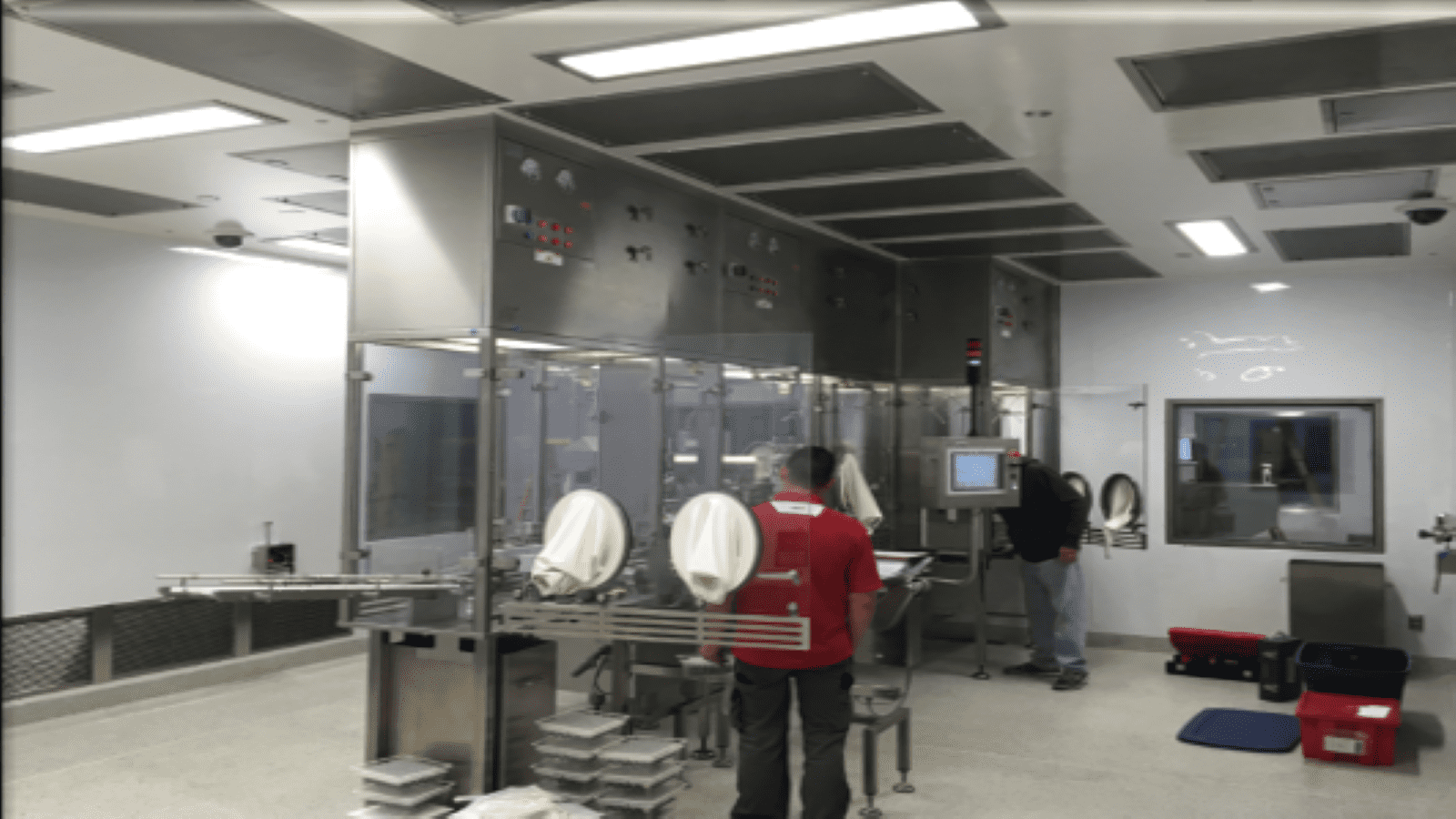
An idea becomes a prototype, then a treatment, then a lifesaver. That’s how R&D is supposed to work, but as Tolmar, Inc., can tell you, tax policy is a crucial element as well.
Tolmar spent years developing a therapy to improve the treatment of advanced prostate cancer. The resulting long-acting injectable, called ELIGARD®, works by stopping testosterone production to slow the growth of cancer cells. It’s a remarkable technology, now used by patients nationwide and around the world who are fighting advanced prostate cancer.
This innovation was facilitated by a U.S. tax policy that supported R&D investments by pharmaceutical companies. However, a recent change means that Tolmar and other pharmaceutical R&D units will find it more difficult to produce innovations that make human lives better, safer, healthier and longer.
The problem: Until about a year ago, businesses were able to deduct 100% of their R&D expenses in the year in which they incurred the expenses. Starting in 2022, however, a change in tax policy requires businesses to spread their R&D deductions out over a period of five years, making it more expensive to invest in innovation.
The cost for companies: “We have a finite amount of capital to put into the development of new products. The changes in tax policy will lead to difficult decisions,” said, Tolmar Chief Financial Officer Jeff Lederman.
- “We typically put the vast majority of our cash back into the company—whether that means investing in R&D, capital purchases or our workforce—and if we have less funding, we have to cut back in some or all of those areas. So, this policy change could have a significant impact on our organization.”
The cost to patients: This tax change could also have a negative impact on patients in the United States and around the world by delaying the development and availability of innovative new therapeutic products.
- Tolmar is one of a small number of U.S. manufacturers of long-acting injectable prostate cancer treatments, and the company has a number of other innovative medicines and therapeutics in its pipeline.
- “This is not so much about saving dollars; it’s about patient impact,” said Tolmar President and Chief Operating Officer Shawn Silvestri. “The results we’re chasing are meaningful to patients’ lives. If you’re looking for something that’s purpose-driven, that’s the kind of work we do—and that makes the choices for me that much more difficult.”
A competitive disadvantage: While the impact on patients is the most worrisome effect, the R&D tax change also has negative implications for American economic competitiveness.
- Making research more expensive puts companies that operate in the U.S., as Tolmar does, at a distinct disadvantage, especially when other countries are aggressively supporting domestic research.
Our move: At the NAM, we’re pushing Congress to reverse this change and allow manufacturers to keep investing in innovation, jobs and workers. Learn more and take action at www.nam.org/protect-innovation.
NAM Opposes FTC Ban on Noncompete Agreements
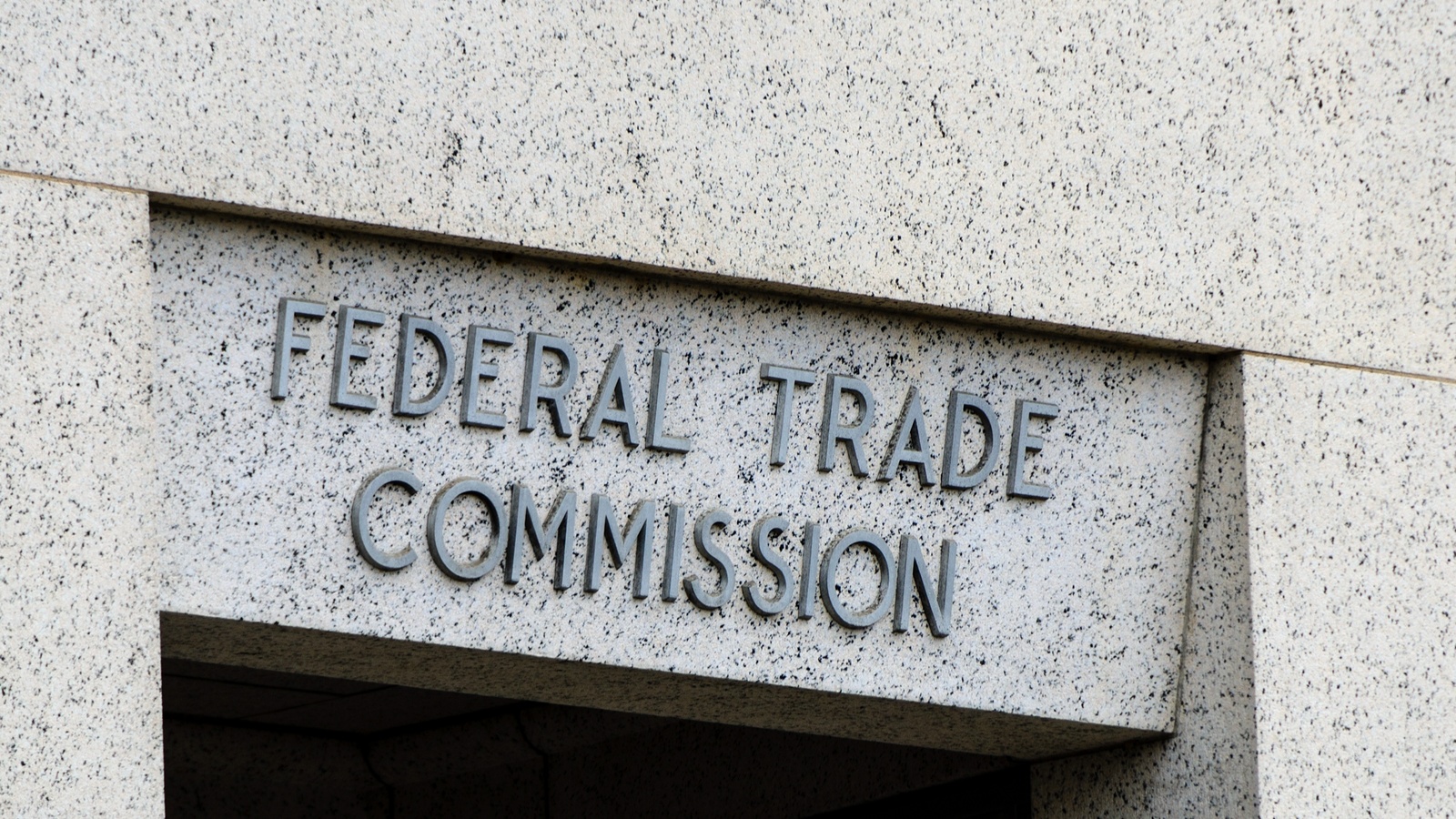
The NAM is opposing the Federal Trade Commission’s proposed ban on all noncompete agreements, pushing back on a move that would damage the manufacturing industry. We talked to NAM Vice President of Infrastructure, Innovation and Human Resources Policy Robyn Boerstling about the NAM’s reasoning on this crucial issue.
What noncompetes do: As Boerstling put it, manufacturers use noncompete agreements only for select workers handling their most sensitive information.
- That information might include the details of the company’s most sophisticated processes and strategies, which cannot be allowed to fall into competitors’ hands.
- Not only do these employees handle the keys to a company’s success, Boerstling added, but they are the recipients of significant investments in time, compensation and training.
The potential damage: Banning noncompetes would force companies to revamp their human capital operations completely, argued Boerstling.
- It would mean that trade secrets or other essential information might walk out the door and be exploited not only by competitors, but also by foreign adversaries.
- Manufacturers would be forced to put in place burdensome controls or silo parts of their operations from each other, which would result in less training for employees and less efficiency across various divisions.
- In a highly competitive industry—not to mention during significant economic uncertainty—that is a high price to pay, Boerstling pointed out.
Why not something else? Noncompete agreements are a critical tool for protecting manufacturers’ intellectual property, and alternatives like nondisclosure agreements are not sufficient, said Boerstling.
- In fact, in IP cases, courts look specifically at whether a company has employed noncompete agreements in deciding whether that company has taken reasonable steps to protect their property and processes.
FTC in the wrong: The FTC is wrong to put forth this blanket ban on a number of counts, said Boerstling.
- First, the rulemaking concerns an issue of “vast economic and political significance” that is beyond the scope of the FTC Act.
- Second, the regulation of these agreements has been handled successfully at the state level, a situation that works well for manufacturers.
- Third, the FTC is being too simplistic by striking at all noncompetes at once. Complex technical industries require noncompetes for good reason, as their sophisticated IP is the core of their business.
- Last, this ban is set to be retroactive, which is sure to cause confusion for both employers and employees.
What the NAM wants: The NAM objects to the FTC’s proposal in its current form and asks that it be withdrawn until the FTC can propose a more tailored approach that allows for sensible exemptions, said Boerstling.
NAM Speaks Out Against New EPA Regulations
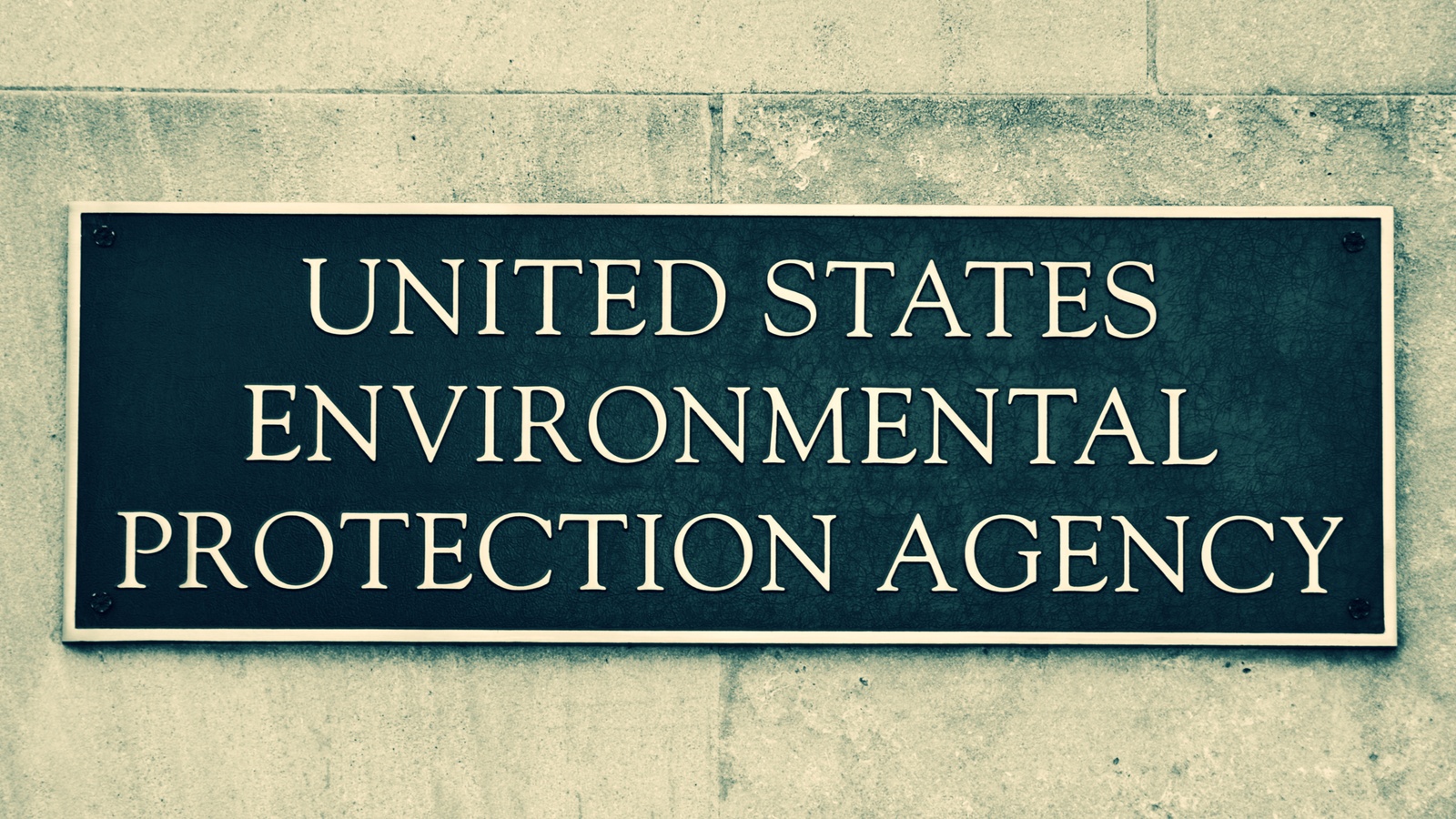
Manufacturers across the United States have long been leading the way on sustainability. From outpacing international competitors on emission reductions to making investments in clean technologies, the industry has implemented best practices for others to use and blazed a trail for them to follow.
NAM Director of Energy and Resources Policy Chris Morris emphasized manufacturers’ track record during a hearing before the Environmental Protection Agency last week, where he explained to policymakers that their proposed air quality rules would stifle rather than enhance manufacturers’ efforts. Here’s what he had to say.
A record of leadership: “Our industry has championed environmental stewardship at every turn, and our members have invested heavily in new processes and technologies that have made manufacturing in the U.S. cleaner and more sustainable than ever,” said Morris.
- “This innovation in the manufacturing sector has played a key role in the reduction of air pollution we have seen over the last 50 years.”
Manufacturers’ impact: “Across the board, levels of major pollutants have declined dramatically, and we are outpacing our global competitors in air quality improvements,” said Morris.
- “According to the EPA, the U.S. has reduced six common NAAQS pollutants, including PM2.5, by 78% between 1970 and 2020.”
- “Additionally, EPA data shows that PM2.5 air quality has improved 44% since 2000. Manufacturers are committed to ensuring that progress continues.”
The challenge: New proposed regulations from the EPA would have a number of negative effects, Morris noted.
- Tighter air quality standards would make permitting more difficult, raise compliance costs and make it harder for manufacturers in the United States to compete with companies abroad—especially at a time when manufacturers are concerned about the country’s economic outlook.
The path forward: Morris urged policymakers to ensure that current regulations are fully implemented before they propose new ones, and to work together with innovative manufacturers on smart solutions.
- “The U.S. has some of the best environmental standards in the world, and American manufacturers are consistently reducing emissions, conserving critical resources, protecting biodiversity, limiting waste and providing safe products and solutions so others in our country can do the same,” said Morris.
- “But in order to maintain our environmental leadership, we need better regulations.”
The last word: “In our view, environmental protection and a thriving economy are not mutually exclusive,” said Morris. “We can have both—but it requires working together toward a constructive solution. Manufacturers are committed to smart, strong environmental safeguards and improving the lives of all Americans so that no one—and no community—is left behind.”
“Competing to Win” Comes to Louisiana
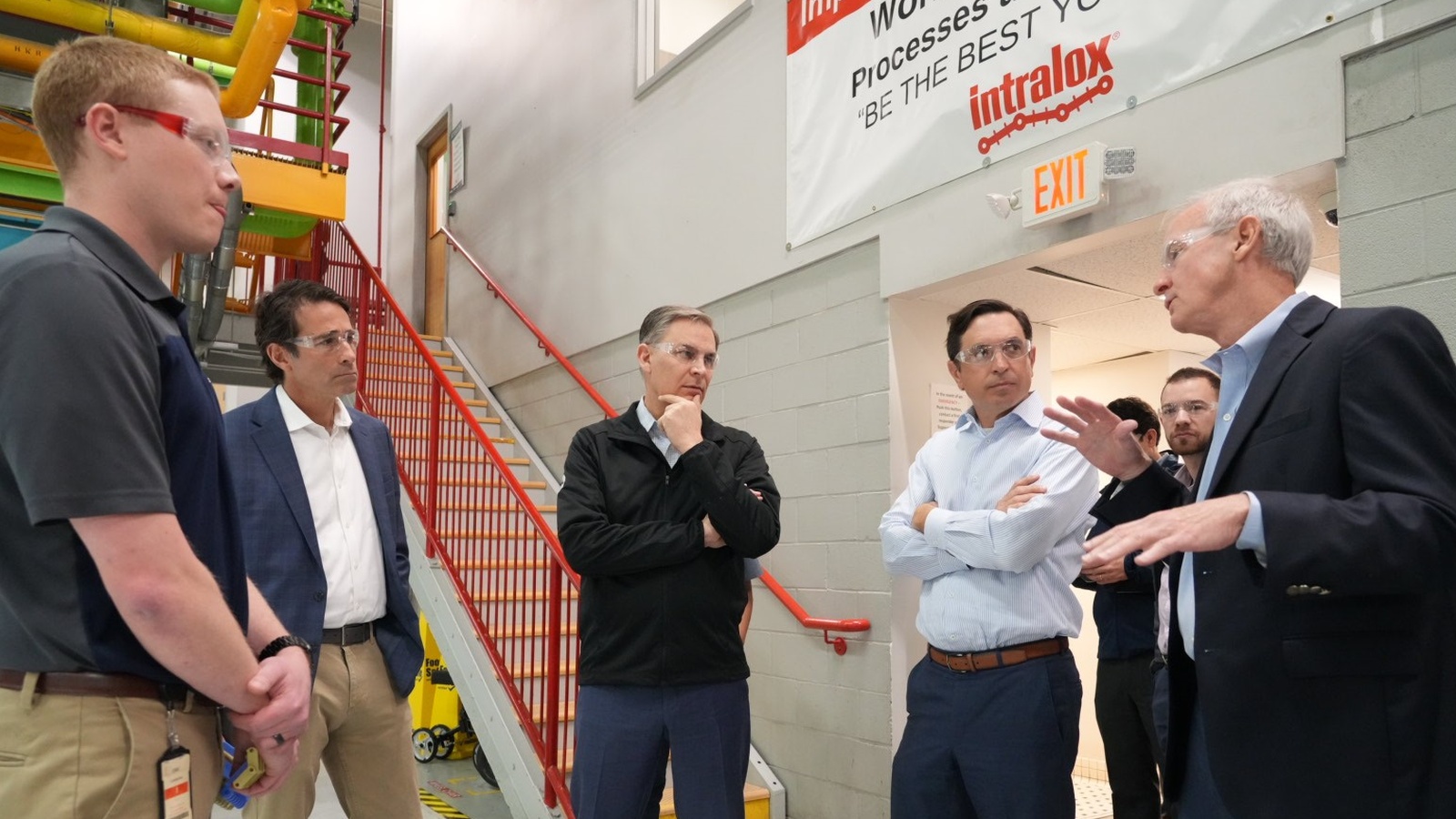
Few things are more quintessentially Louisianan than seafood and Tabasco sauce, and on the third stop of the NAM’s Competing to Win Tour on Thursday, NAM President and CEO Jay Timmons got to spend some time with both.
The first stop: Laitram LLC, the Harahan, Louisiana–based manufacturing leader in seafood and nuts processing equipment, played host to Timmons, Louisiana Rep. Garret Graves (recently tapped by House Speaker Kevin McCarthy as Elected Leadership Committee chair) and Louisiana Association of Business and Industry President and CEO Stephen Waguespack.
- Laitram President and CEO Jay Lapeyre (who also serves as chairman of the Cato Institute Board of Directors) and his team led the group through a facility tour of Intralox, a subsidiary of Laitram specializing in conveyer belts and equipment that improve productivity, food safety and reliability in high-speed package sorting.
- Timmons, Rep. Graves and Waguespack spoke with line employees across the facility, and Timmons was impressed by the company’s successes in employee retention: “Nearly everyone I met had been there a decade or more … One team member recently marked 46 years with the company,” he noted afterward.
Talking policy: Timmons moderated a roundtable discussion on manufacturing policy opportunities and challenges with Laitram’s senior staff, Rep. Graves and Waguespack after the tour.
- Lapeyre and his team expressed concerns about pass-through tax rates, which impact Laitram given that it is an S-Corp. They also raised alarms about the recent phaseout of pro-growth tax deductions for research and development and bonus depreciation.
- Trade emerged as a top priority for Laitram and its global enterprise, and Lapeyre also shared his perspective on the need for more regulatory certainty, particularly in the light of a potential new rule from the Federal Trade Commission limiting the use of noncompete agreements.
- Meanwhile, Rep. Graves emphasized the continued importance of protecting tax reform and pointed to ongoing efforts in Congress to advance permitting reform.
The second stop: The NAM team then headed to Avery Island, about two hours outside of New Orleans, where they visited McIlhenny Company, the maker of the iconic red-and-green-bottled Tabasco pepper sauce.
- Timmons was given a full tour of the 155-year-old company’s facilities, which included stops at the manufacturer’s barrel-aging warehouse, blending facility, bottling and packing plant and its onsite restaurant.
- McIlhenny Chief Operating Officer Michael Terrell—a fourth-generation employee of the company—and Agricultural Manager Christian Brown—a sixth-generation employee—guided the tour around the facility, which showed off some of the manufacturer’s recent bottling-plant innovations. These included label readers, case packers and a packet line, as well as several sustainability initiatives.
The last word: As Timmons said at the outset of the competitiveness tour, “The story of manufacturing in America is one of resilience and defying the odds. All manufacturers ask is that in Washington, when it comes to policy, don’t stack those odds against us.”
Timmons to Congress: Permitting Reform Urgently Needed

NAM President and CEO Jay Timmons has been making the most of his time on the road during the Competing to Win Tour, delivering a strong message to congressional leaders about top manufacturing priorities. He did so again yesterday on permitting reform with congressional leaders in Washington:
- “Some of the biggest obstacles preventing manufacturers—and therefore the entire American economy—from reaching our full potential are the permitting delays, red tape and complicated bureaucracy that have plagued us for decades,” he told the leadership of several House committees.
He went on to cite a number of different areas in which permitting reform is desperately needed, including . . .
Energy: Permitting reform is crucial to almost every sector of energy manufacturing, from oil and gas all the way to nuclear and clean energy technologies.
- “For example,” Timmons noted, “the siting of and infrastructure for hydrogen power generation and transportation and for advanced, small modular and micro-nuclear reactors have progressed far too slowly.”
- “Manufacturers depend on access to reliable and affordable energy to expand, which is why we support reforms that would foster transparent, streamlined and timely federal regulatory processes for the siting, permitting and licensing of energy delivery infrastructure of all types,” he continued.
Transportation: Manufacturers also need railroads, highways, airports and ports to run their operations and get their products out the door.
- “Yet obtaining permit approvals for these projects often takes years, especially when reviews are piecemeal and duplicative,” Timmons pointed out. “[M]any companies are waiting on the sidelines because transportation infrastructure construction moves too slowly—or not at all.”
- “To ensure the broad and beneficial impact of [the bipartisan Infrastructure Investment and Jobs Act of 2021] … it is critical to clear permit backlogs and ease processing timelines,” he said.
Resource development: Manufacturers prioritize sustainability, Timmons noted, but “restricting access to America’s abundant natural resources hinders our ability to strengthen domestic supply chains.”
- “The inconsistent administration of critical mineral policies, for example, has limited our ability to use a wide range of resources that lie on and beneath federal lands—resources that are critical to producing everything from cars to medical devices,” he added.
- “Streamlining resource permitting and leasing policies will help stabilize manufacturing supply chains, control costs for consumers, reduce our reliance on foreign countries and create jobs in the U.S.”
Environmental standards: Manufacturers have worked steadily to improve U.S. air quality, helping to “lead our country to the cleanest air in the modern world,” said Timmons.
- “Unfortunately, when federal agencies continually revise standards before current standards are met and before states have implemented prior mandates, they create unpredictability”—which may mean that new manufacturing facilities get built in other countries instead, where they don’t face as rigorous standards.
- However, if Congress makes regulations more predictable and consolidates review processes, the U.S. “can continue to build on its strong record of environmental stewardship by boosting domestic manufacturing, which is environmentally cleaner than international competitors,” Timmons concluded.
Congressional intent: Congress should make sure that permitting reform isn’t just passed, but also implemented as easily as possible, Timmons advocated.
- It should conform to “on recent and future statutory streamlining efforts such as One Federal Decision,” while making sure federal agencies don’t duplicate each other’s efforts and waste time.
The last word: “Permitting affects every aspect of our lives—from our economic security to our national security,” said Timmons. “[I]f we seize this opportunity to lead, there is no limit to what manufacturers in the United States can accomplish—for the good of our people and for the good of the world.”
Timmons Gives NAM State of Manufacturing Address
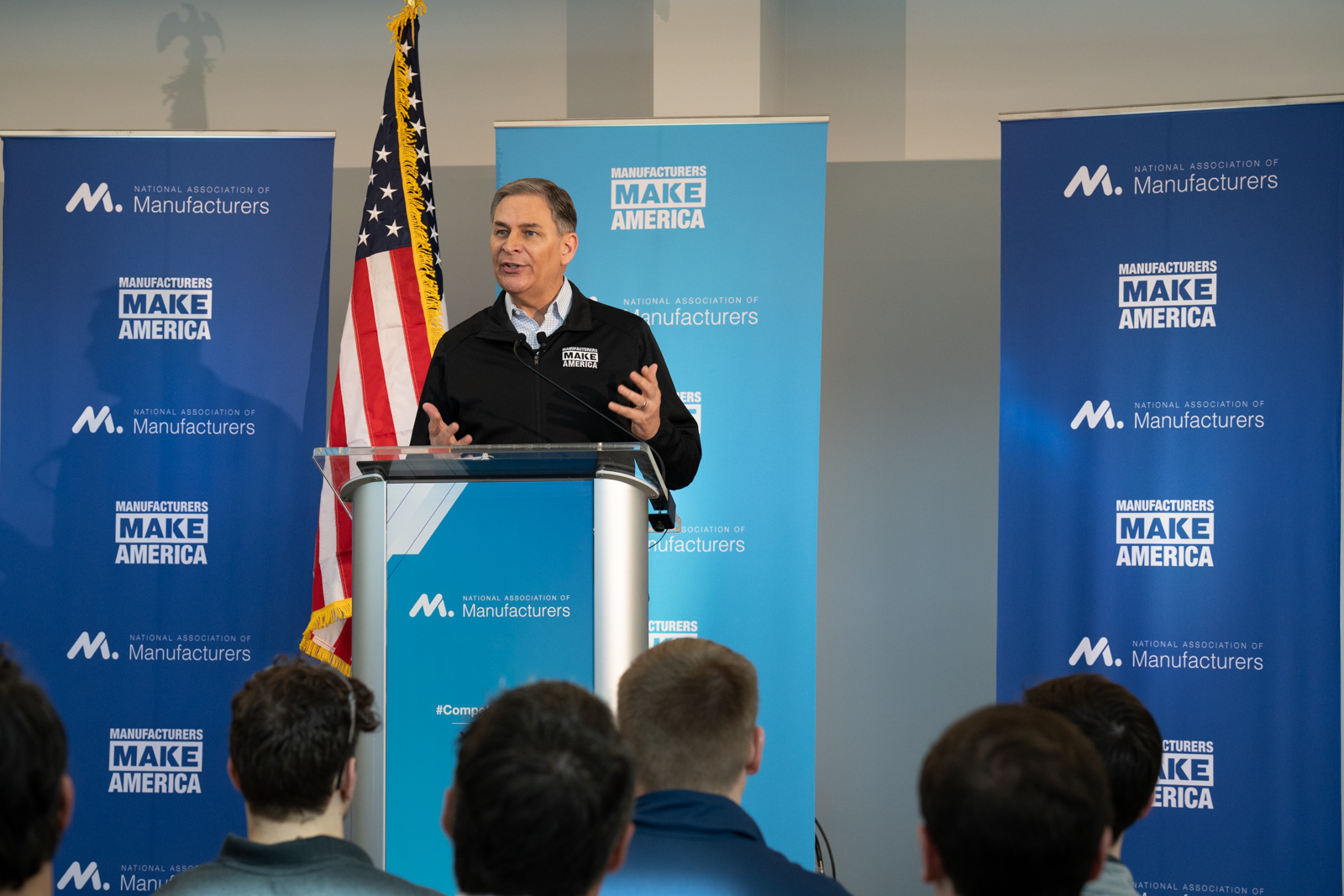
Manufacturing has a leading role in the U.S. economy—but there is still a great deal more to do. That was the message at this year’s NAM State of Manufacturing Address from NAM President and CEO Jay Timmons.
Timmons spoke to a gathering of manufacturing team members and the media at Husco in Waukesha, Wisconsin. In his remarks, he laid out the NAM’s view of where the industry is and where it’s going.
The program: The event began with a message from Kurt Bauer, president and CEO of Wisconsin Manufacturers & Commerce, followed by an introduction from NAM board member Austin Ramirez, president and CEO of global engineering and manufacturing company Husco.
- “Wisconsin manufacturers contribute to the vitality of our state through their innovation, productivity and commitment to customer satisfaction,” said Bauer. “While we face many challenges, we are also in the enviable position of controlling our destiny—as long as we work together to create a shared vision of prosperity and an action plan to achieve it.”
- “We are here to shine a light on the amazing, life-changing work that manufacturers do every day,” said Ramirez. “We are the backbone of the American economy, and we are proud of it.”
The state of manufacturing: Timmons spoke about Russia’s invasion of Ukraine, the importance of the manufacturing industry’s support for the Ukrainian people and the larger struggle between freedom and tyranny.
- “Despite everything happening around us, like the threat of a recession and global conflict, manufacturers are still leading the way forward,” said Timmons.
- “And although our industry and our country will need to make audacious and sometimes uncomfortable changes to adapt to economic, political and global challenges … I’m confident in reporting that the state of manufacturing in America remains steadfast and resolute.”
Manufacturing solutions: Timmons cited a variety of manufacturing challenges, then detailed the NAM’s plans to fight for manufacturers across the United States.
- Supporting immigration: “For so many manufacturers in America right now, there are more open jobs than there are people to fill them,” said Timmons. “One of the many ways we fill those jobs and keep our economy moving is welcoming immigrants into our workforce … just like we have in the past to build a stronger, more prosperous America.”
- Promoting permitting reform: “Permitting reform means making it easier to get permission to build that new road or power plant, or for manufacturers to build new facilities,” said Timmons. “If Washington could just cut through the bureaucracy and streamline processes, like you do in your businesses every single day, we could do more for this country.”
- Fighting for tax fixes: “The NAM is determined to get Congress to restore incentives for R&D and get our business tax rates and structure back on track to enable us to compete globally,” he said. “And then, let’s lock in competitive rates for small businesses … so that you can plan confidently for the future.”
- Competing with China: “If we’re going to counter China, then we must hold China accountable for the trade commitments it has already made to the U.S.,” said Timmons. “And we have to forge ambitious, cutting-edge trade agreements with our allies. Other countries aren’t waiting around. So, let’s think big. And let’s be bold.”
- Pushing back on new EPA rules: “We’re going to tell the EPA that manufacturers are already leading [in cleaning] our air,” said Timmons. “The government shouldn’t enact rules that, however well-intentioned, would make it more difficult to achieve our environmental goals, slow our economic growth and push us closer toward recession.”
The last word: “History shows us that as long as manufacturers lead the way, America and our democracy will remain that beacon of freedom and hope for people around the world,” said Timmons. “Manufacturers have been, and always will be, in word and deed, the arsenal of democracy. And working together, I know we will keep making this a manufacturing decade.”
